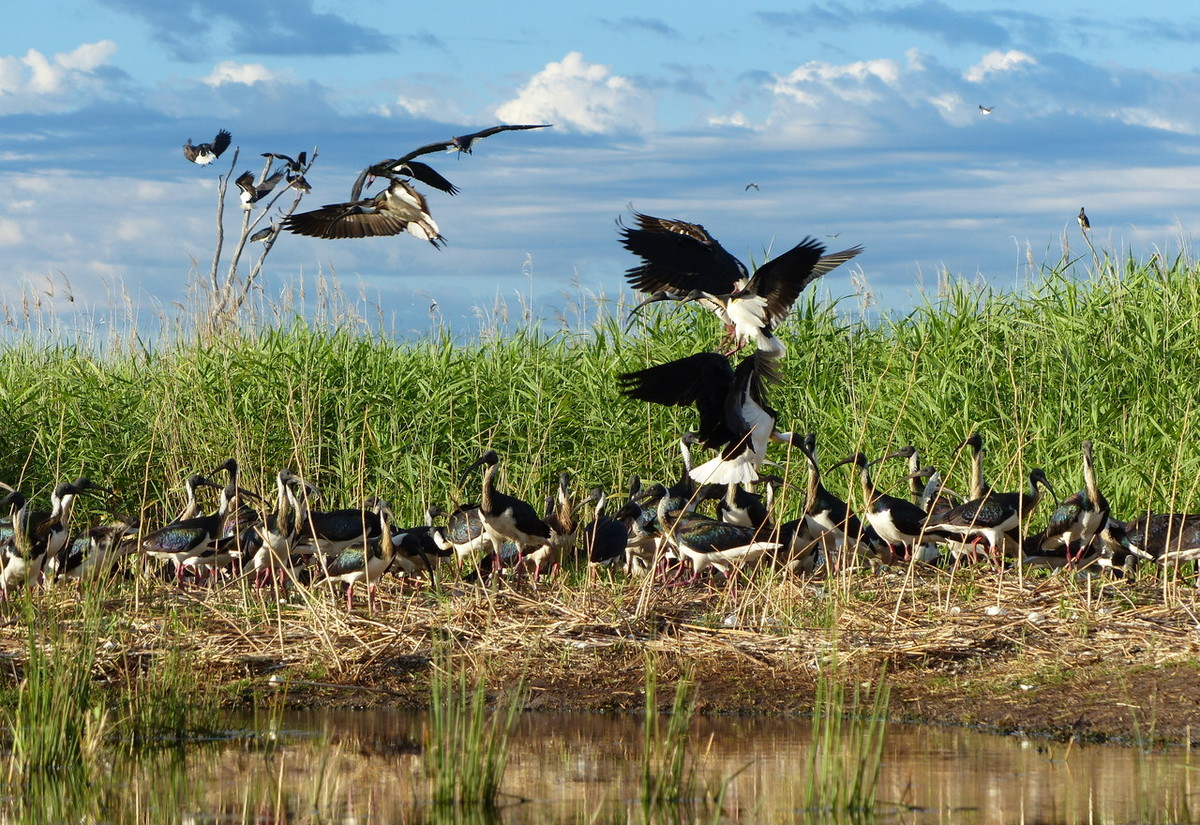Macquarie Marshes in its prime this World Wetlands Day
Laura Williams
01 February 2022, 4:10 PM
 Today is World Wetlands Day - and the magical Macquarie Marshes is bursting with life
Today is World Wetlands Day - and the magical Macquarie Marshes is bursting with lifeAs World Wetlands Day arrives, our local Macquarie Marshes is thriving in one of its best seasons of the decade, yet it isn’t beyond threat, as water controversies continue to circle the wetlands.
Celebrated on 2 February each year, World Wetlands Day marks the anniversary of the signing of the Convention on Wetlands of International Importance, known as the Ramsar Convention, signed in Ramsar, Iran in 1971.
Listed under the convention, a team will celebrate this week by monitoring water bird populations at the Macquarie Marshes, where National Parks and Wildlife Ranger Nicola Brookhouse says there has been a dramatic return since the drought.
“We have found that not all species have returned as yet, but we have started to see a real boom in water bird breeding and we’re seeing our colonial waterbirds really coming in and utilising the wetland at the moment,” Ms Brookhouse said.
With a 10 year life cycle for most water birds and a lack of opportunity to breed since 2016, this year's conditions represents an important opportunity for the recovery of the Macquarie Marshes and the birdlife within.
Right now, there are 22 breeding colonies of water birds across the marshes.
“Despite everything that the marshes have been through these last two years, it really shows the resilience of the wetland and how it can recover if we give them an opportunity to recover,” Ms Brookhouse said.
While the environment is flourishing at the moment, the wetland is still exposed to a number of threats, potentially ruining its progress since drought and bushfires swallowed it.
“River regulation and climate change are the two biggest factors that, combined together, place the Macquarie Marshes at risk. What we’re seeing is more prolonged drought and lower river flows generally, and less opportunity for waterbirds to breed,” Ms Brookhouse said.
Despite the flooding events that occurred late last year, Ms Brookhouse said that it was less water than they hoped for inundating the marshes.
“Unfortunately, that’s largely due to weather and also water storage and recovery of water storage during the drought,” she said.
Plans for the Gin Gin Weir remain a contentious issue for the Macquarie Marshes, creating a significant change to how water is managed and stored.
According to the Convenor for Healthy Rivers Dubbo Mel Gray, the dam would have a significant impact on how much water can reach the marshes.
“Taking more water out of rivers upstream will mean less for First Nations communities, towns, recreational fishers, campers, grazier and water users downstream - it couldn’t be more simple,” Ms Gray said.
This week, however, Ms Brookhouse is celebrating the opportunities for the marshes.
“We’re hoping to see a lot of our important migratory birds such as the Japanese snipe and sharp tailed sandpiper utilising the floodplain as an important habitat for them in their stopover in Australia,” Ms Brookhouse said.
This year, the theme for World Wetlands Day is ‘Wetlands Action for People and Nature’, with the challenge to value, manage, restore and love wetlands.


